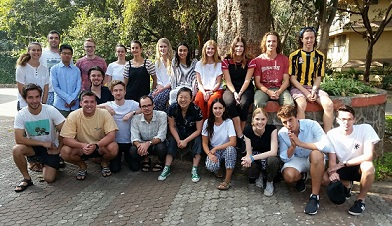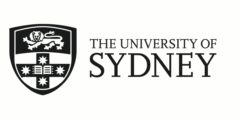
Twenty-two students majoring in political economy and geography have arrived in Mumbai for a three week intensive field school experience. The field school is run by the Departments of Political Economy and Geography in collaboration with Indian university, the Tata Institute of Social Sciences (TISS). The field school involves an intensive, integrated three-week program of classes and field visits addressing the political economy of development and environmental management in modern India. Students are engaged by Indian scholars and civil society groups working on issues of geo-political, economic and environmental importance and gain firsthand insight into the challenges facing one of the most important nations in the contemporary global economy.
The first week of the program will be run at the TISS campus in Mumbai. Students will stay on
campus at the Tata Institute of Social Sciences and participate in tailored classes and city field visits
developed by the local academic staff, in close collaboration the University of Sydney convenors.
This component of the field school will address India’s ‘national story’ of development and inspire
questions about the contested process of economic development, environmental sustainability and
social inequality.
In the second and third weeks of the program involve travel to the southern state of Kerala. We will
fly to Kozhikode, also known as Calicut, and then travel by bus to the rural district of Wyanad. Our
partners, TISS Kerala, have undertaken social audits of this district and they will join us in visits to
villages where we will learn about the contested relationships between economic development, human security and ecological sustainability in this region. We then travel back to Kozhikode to visit
local fishing communities. Researchers from TISS Kerala will brief us on work they have been doing
on the sustainability of coastal fishing communities, during field site visits. Then, we will take a train
trip from Kozhikode to the historic city of Kochi (also known as Cochin) to look at the effects of
tourism and urban development, and then head up to the famous tea plantation districts near the
town of Munnar, to examine how this industry has been affected by economic restructuring and
globalisation. The final leg of our journey then takes us to the city of Allepey to investigate the
effects of flooding, and then to Kerala’s capital, Thiruvanathapuram (also known as Trivandrum), for
seminars with policy‐makers and researchers on Kerala’s story of development and sustainability.
We will also make a field visit to the Laurie Baker Centre for Habitat Studies, where will we learn
about affordable and environmental housing. During our time in Trivandrum, we will be staying at
the Sagara Resort Hotel in Kovalam Beach, just 20km outside of the city. This hotel was designed by
architects working with the Laurie Baker Centre, and incorporates eco‐friendly design principles. Our
final destination is Kanyakumari, the southernmost tip of the peninsula, where we can dip out feet in
the water at the very extreme end of India.
The blog posts that follow will capture the student experience of contextualized learning and their reflections.
Skip to content

